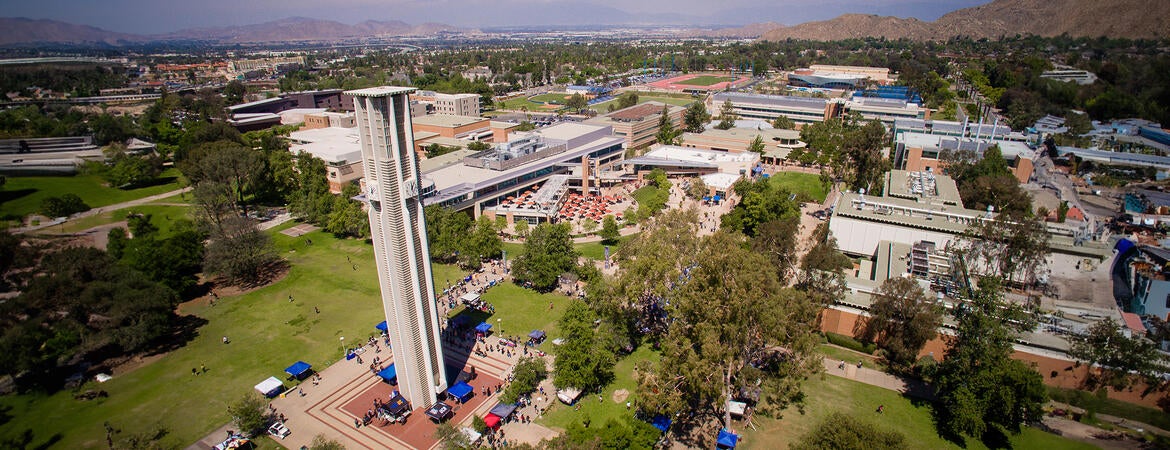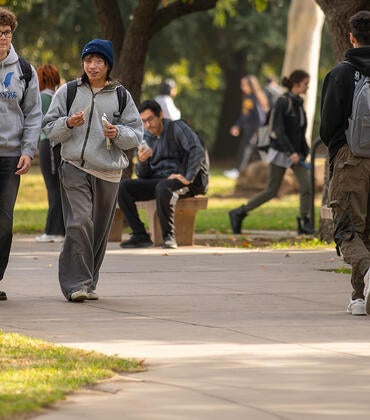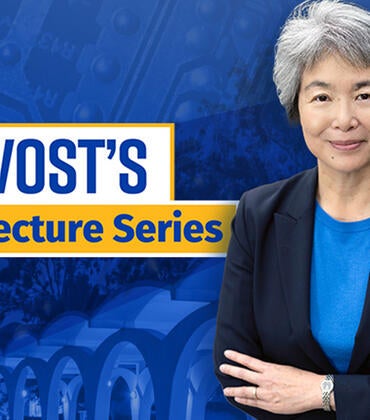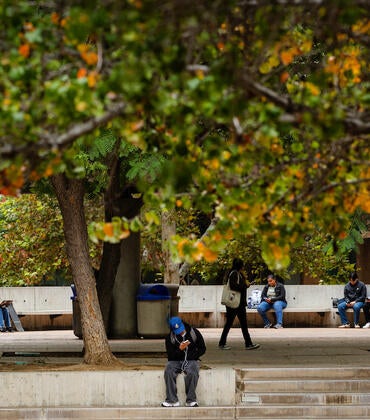UCR’s division of Research and Economic Development, or RED, has announced faculty awardees of medium-sized grants (up to $50,000 each) for 12 research projects through its SoCal OASIS™ initiative, which stands for Opportunities to Advance Sustainability, Innovation, and Social Inclusion. The grant program is a key part of RED's broader commitment to foster interdisciplinary collaboration and advance impactful research. RED has awarded a total of $4.7 million to support faculty research across a wide range of disciplines through SoCal OASIS™.
These internal grants enable UCR faculty to work with colleagues outside their disciplines to initiate, continue, or expand research, scholarly, and creative activities. Faculty from all disciplines and methodological approaches from all schools, colleges, departments, and programs are eligible for the SoCal OASIS™ funding. In addition to the larger grants, RED also awarded grants of up to $25,000 to 25 other research projects. Here are descriptions of medium-sized grant projects:
Smart drones and sensors to improve farming efficiency
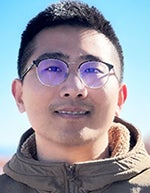
Principal Investigator: Zhaowei Tan, assistant professor of computer science and engineering
Co-Principal Investigator: Amir Verdi (environmental sciences)
This grant project aims to enhance farming technology by integrating drones with ground sensors and cloud-based data analysis. The system, called AGLINK, will provide farmers with real-time insights into crop health, irrigation needs, and resource use. While drone-mounted cameras have improved crop monitoring, current methods struggle to connect aerial images with conditions beneath the soil. AGLINK solves this problem by linking drone-based sensors with in-field devices through long-range wireless communication. The system will also process and visualize agricultural data, allowing farmers to make more informed decisions. By reducing manual labor and optimizing water and fertilizer use, this project supports sustainable farming while advancing research in agricultural technology. Additionally, AGLINK will help train students and researchers in precision agriculture, ensuring that future advancements benefit both farmers and the environment.
Building a skilled workforce for digital agriculture
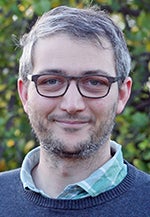
Principal Investigator: Elia Scudiero, associate professor of precision agriculture in environmental sciences.
Co-Principal Investigators: Amit Roy-Chowdhury (electrical and computer engineering), Dana Simmons (society, environment, and health equity), Stephanie Dingwall (biochemistry)
Agriculture in Inland Southern California is facing climate change, resource shortages, and workforce gaps. Small family farms, which form the backbone of the region’s agricultural economy, often lack the tools to adopt advanced digital technologies. This project will address such challenges by creating a talent pipeline for high-tech farming. Led by CAFÉ, the Center for Agriculture, Food and the Environment, , the project will help students from Hispanic-serving institutions transfer to UCR, gain hands-on experience, and enter the workforce with skills in AI, automation, and precision agriculture. By aligning academic training with industry needs and strengthening regional partnerships, the project seeks to keep skilled graduates in the area, boosting local innovation and economic resilience. The goal is to build a regenerative cycle of talent that supports sustainable agriculture while creating new career opportunities in a rapidly evolving field.
Investigating chemical exposure in cars
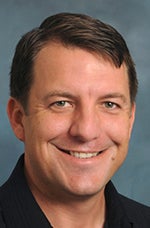
Principal Investigator: David Volz, professor of environmental toxicology (environmental sciences)
Co-Principal Investigators: Ajami Hoori (environmental sciences), Roya Bahreini (environmental sciences)
Most people spend hours in their cars each week, but few consider the potential health risks inside their vehicles. This project will examine the presence of tris (1,3-dichloro-2-propyl) phosphate (TDCIPP), a flame retardant found in car interiors that has been linked to cancer and other health concerns. The research focuses on how temperature variations affect the release of this chemical into the air inside vehicles. By analyzing air samples from cars in different Southern California microclimates—coastal, inland, and desert regions—the team will better understand how commuters are exposed to this chemical. The findings could inform public health policies and lead to new safety regulations for car interiors to reduce human exposure to potentially harmful chemicals in everyday environments.
Understanding the challenges of student caregivers
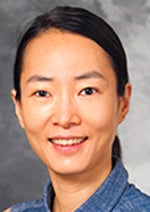
Principal Investigator: Chioun Lee, associate professor of sociology
Co-Principal Investigators: Rachel Wu (psychology), Soojin Park (School of Education)
For many college students, balancing coursework with caregiving responsibilities can be overwhelming. At UC Riverside, many students, particularly those from underrepresented backgrounds, take on caregiving roles for family members while pursuing their degrees. This study examines the impact of caregiving on academic success, mental health, and long-term well-being. By analyzing survey data from UCR and national sources, the research will assess both the short-term struggles and long-term outcomes for student caregivers. The goal is to identify barriers and develop policies that better support these students, improving their educational experiences and overall health. The study also will contribute to broader discussions on intergenerational caregiving and social mobility, offering insights into how higher education institutions can adapt to the realities faced by a growing segment of their student population.
AI-powered math tool to support STEM students
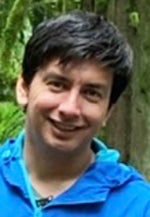
Principal Investigator: Patricio Gallardo Candela, assistant professor of mathematics
Co-Principal Investigator: Maziar Raissi (mathematics)
Math-intensive courses can be challenging for students, especially those from underrepresented backgrounds who may lack access to expert guidance. This project will address this issue by developing UCR-Assist, an AI-driven math assistant that provides real time feedback on mathematical proofs, which are structured methods for establishing mathematical truths. Unlike standard AI tools that rely on probabilities, UCR-Assist integrates a mathematical proof verification system to ensure precise, logical reasoning. The platform will be used in courses like Linear Algebra and Introduction to Proofs, helping students develop the critical thinking skills needed for advanced studies and careers in STEM fields. In addition to improving student success, this project will make high-level math more accessible to many students.
Theater as a tool for healing and empowerment

Principal Investigator: Bella Merlin, professor of theatre, film, and digital production
Co-Principal Investigator: Annika Speer (theatre, film, and digital production)
This project uses theater to help domestic violence survivors reclaim their voices. The Body-Word-Voice initiative combines acting techniques, public speaking training, and storytelling to help participants process their experiences in a supportive environment. A key feature will be the performance of “Tilly No-Body,” a solo play that explores coercive relationships and serves as a starting point for discussions about trauma and recovery. The program also includes workshops with survivors, counselors, and students, culminating in performances and reflection-based activities. Beyond its local impact, the project will reach an international audience through participation in the Edinburgh Fringe Festival, showcasing UCR’s performing arts research on a global stage. By blending theater, psychology, and social activism, this initiative highlights the transformative power of storytelling in fostering healing and community dialogue.
Turning salty water into irrigation supplies using algae
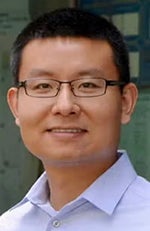
Principal Investigator: Haizhou Liu, professor of chemical and environmental engineering
Co-Principal Investigator: Robert Jinkerson (chemical and environmental engineering)
As water shortages continue to threaten agriculture, researchers at UC Riverside are working on a sustainable way to convert salty water into fresh irrigation supplies. This project uses algae-based technology to remove excess salts from agricultural runoff and brackish groundwater, making the water suitable for crops. Unlike traditional desalination methods that require high energy use, this approach harnesses algae’s natural ability to transport ions, reducing the need for energy-intensive processes. The system will also produce useful byproducts, such as biomass that can be repurposed as livestock feed. In addition to supporting sustainable farming, this research advances bio-based water treatment technologies that could be scaled for broader agricultural and environmental applications. By addressing water scarcity through innovative science, this project has the potential to make farming more resilient in drought-prone regions like Southern California.
Affordable sensors for detecting harmful PFAS chemicals
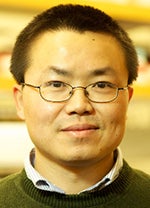
Principal Investigator: Yadong Yin, professor of chemistry
Co-Principal Investigator: Jinyong Liu (chemical and environmental engineering)
This project will assist in the development of a cost-effective, portable sensor that can detect a wide range of per- and polyfluoroalkyl substances (PFAS) contaminants in water and soil in real time. The device will use nanotechnology-based materials to concentrate and break down PFAS compounds, making detection faster and more affordable. PFAS substances, also known as “forever chemicals,” pose serious health and environmental risks. These toxic compounds, found in everyday items like nonstick cookware and firefighting foam, accumulate in water and soil, making them difficult to remove. Current detection methods are expensive and require specialized equipment, limiting their use in many communities. Designed for smartphone compatibility, this sensor could be deployed in areas where water and soil safety monitoring is needed. By providing a more accessible way to track PFAS pollution, this project aims to protect public health and improve environmental monitoring efforts nationwide.
Overcoming clean energy barriers in Southern California
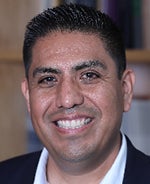
Principal Investigator: Alfredo A. Martinez-Morales, associate project scientist, CE-CERT
Co-Principal Investigators: Fred Schwartz (CE-CERT), Ronald O. Loveridge (political science)
Transitioning to clean energy is a key goal for California, but challenges such as land availability and transmission infrastructure often slow progress. The SOLSTICE 2.0 project will work to remove these roadblocks by bringing together policymakers, researchers, and industry leaders to develop practical solutions. Building on earlier efforts to expand solar and energy storage in Inland Southern California, this phase of the project will focus on regulatory hurdles and grid capacity limitations. Through technical assessments, policy recommendations, and public forums, SOLSTICE 2.0 will provide a roadmap for accelerating the region’s clean energy transition. By fostering collaboration between local governments, energy providers, and businesses, the project seeks to position Inland Southern California as a leader in renewable energy innovation while supporting the state’s ambitious decarbonization goals.
Using AI to improve geothermal energy and earthquake monitoring

Principal Investigator: Abhijit Ghosh, professor of geophysics
Co-Principal Investigator: Asif Salman (electrical and computer engineering)
This project will use artificial intelligence to improve real-time earthquake monitoring and optimize geothermal energy extraction in the Salton Sea region, which is a hotspot for geothermal energy production, lithium extraction, and seismic activity. Its location near major fault lines makes it an ideal site for studying the relationship between geothermal operations and earthquake risks. By integrating AI-driven analysis with physics-based models, the project will help distinguish between natural and human-induced seismic events. The findings will contribute to safer geothermal energy production, support responsible lithium extraction, and advance California’s clean energy initiatives. Additionally, the project will develop a comprehensive seismic monitoring system to enhance hazard assessment and resource management in the region.
AI-powered traffic systems for smarter, safer roads
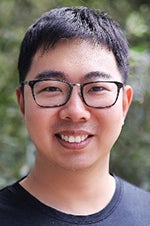
Principal Investigator: Jiachen Li, assistant professor of electrical and computer engineering
Co-Principal Investigator: Guoyuan Wu (electrical and computer engineering)
This project aims to provide an AI-driven solution to traffic congestion and road safety in urban areas. It will leverage advanced light detection and ranging (LiDAR) sensors and high-resolution cameras, combined with artificial intelligence, to improve traffic signal control and predict movement patterns of vehicles and pedestrians. Unlike traditional traffic systems that rely on basic timers, this technology will enable real-time adjustments to optimize traffic flow, reduce delays, and lower emissions. Tested at the Riverside Smart Intersection (Iowa and University avenues near the UCR campus), the system aims to create a more efficient and equitable transportation network. The project also focuses on workforce development by training students in AI applications for traffic management, ensuring that future city planners and engineers are equipped with cutting-edge skills. By improving road safety and efficiency, this research will contribute to smarter, more sustainable cities.
Enhancing vehicle-to-vehicle communication for safer roads
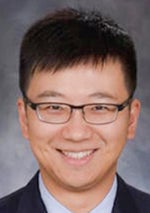
Principal Investigator: Hang Qiu, assistant professor of electrical and computer engineering)
Co-Principal Investigator: Zhaowei Tan (computer science and engineering)
Connected vehicle technology is transforming transportation, allowing cars to communicate with each other and with traffic infrastructure. This project is developing a testbed for cellular vehicle-to-everything (C-V2X) technology, which enables real-time data exchange between vehicles, road signs, and traffic signals. The goal is to enhance safety, reduce accidents, and improve traffic efficiency. While current vehicle communication systems face network limitations and latency issues, this project will test new applications and solutions in a real-world setting. By integrating the technology into the Riverside Innovation Corridor along Riverside’s University Avenue, the researchers are working to create a more seamless and intelligent transportation network. In addition to improving safety, the project will support sustainability by reducing congestion and optimizing energy use in connected and autonomous vehicles.
